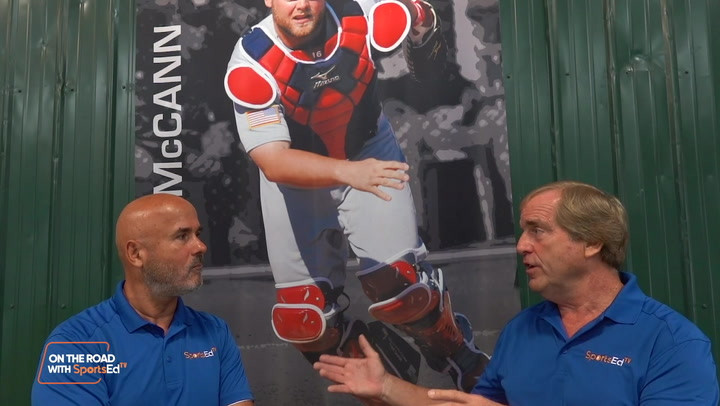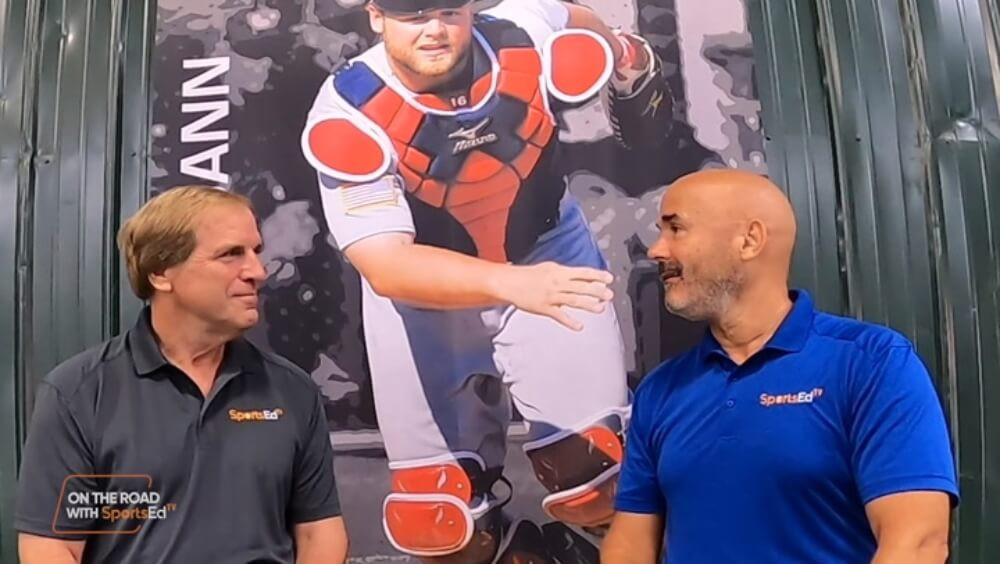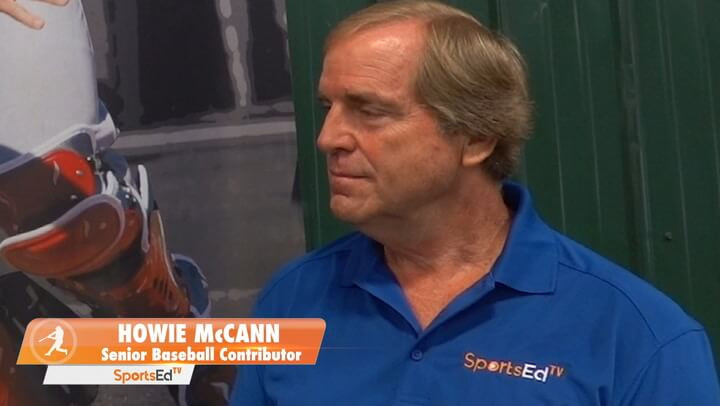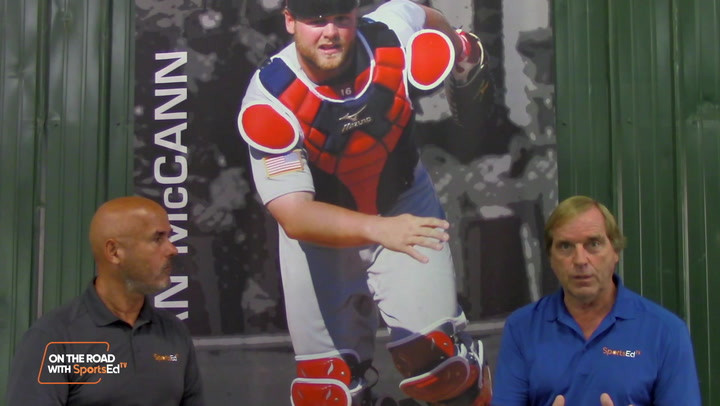Baseball
Welcome and thanks for visiting...

SportsEdTV Talks to Howie McCann (Age 12 to 14)
This is on the road with SportsEdTV.
VB: Hello, everyone. This is Howie McCann with Victor Bergonzoli. We are back. And the past three sessions were very exciting. I hope you enjoyed them. Now we are focused between Little League and high school. So things are getting even more serious than last time, 13, 14 the amazing ages. You know, kids are getting into puberty. So Howie. Welcome back. Tell us about these.
HM: I really think this is a big transition age. This is the time your son finished Little League. Now he's getting ready for high school. And as we said in the last couple of weeks, the only time I worry about your son or daughter is making the high school team. So we've got two years to make this happen. As Victor said, kids are getting bigger, stronger, and faster.
What really happens now in baseball if your son or daughter isn't really engaged, this is where they kind of jump off the ship. So they'll stay through 12. And at 13, they’ll say I'm not going to be a baseball player. However, if your son or daughter wants to play high school, this is where it's at. So the next two years is imperative for you to really increase lessons, games and practice to make sure he's ready to go to high school to make the team.
VB: So how does it work for these kids who are getting serious? There's no more REC? There's still REC? If you still want to play is there a place for you. But when you get to high school, guys start throwing curve balls and changeups and cutters and sinkers and they enlarge the field. If the field goes further back, like you go from the pitching mound and Little League is 50 feet, well, 13, 14, it goes back to 54 and 60. So you start playing Major League Baseball size. Sixty feet, six inches as a pitcher. And if your mechanics aren't good enough to throw that distance, you'll end up hurting your arm, your shoulder like that. So that's why the mechanics that we talked about as a young person, we really have to make sure that they're really good at 13, 14.
VB: How many practices a week?
HM: A lot of the real good teams up here in Atlanta, they'll practice two or three days a week and then they'll play in the weekends. So this is kind of a commitment. Yeah. On the weekend you played Saturday and Sunday, most teams will play at one Friday night to Saturday. And then if you get in the championship cup on Sunday.
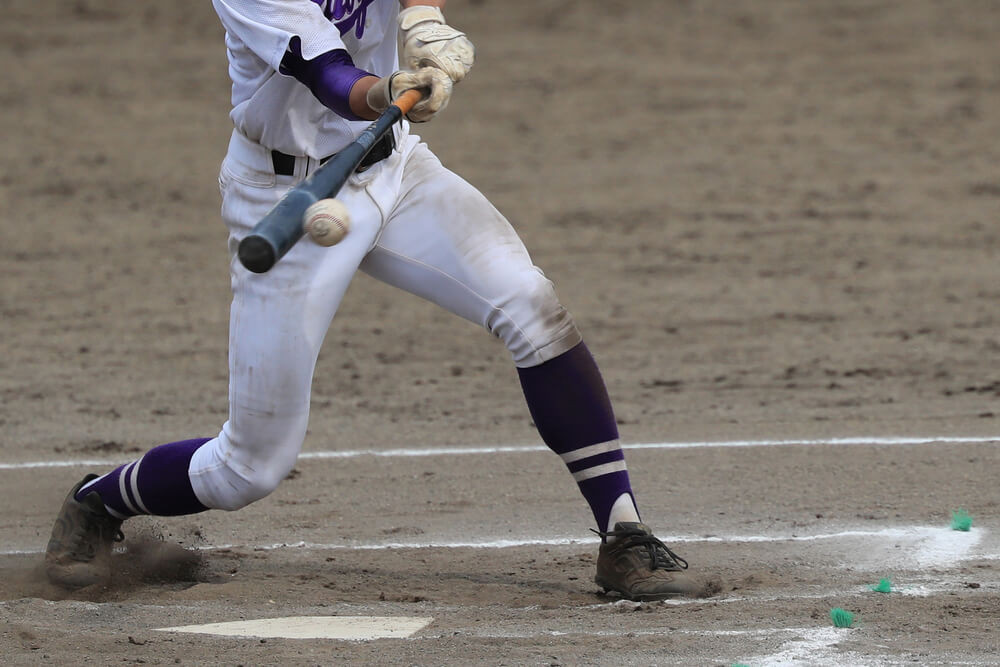
VB: That's getting serious. And then on top of that, they take lessons with you.
HM: Yeah, most of my kids come in once a week and then I go over what you did over the weekend, how you hit, how do you feel, how you're pitching, etc. And then if you had a bad pitching outing, we'll work on pitching. If you didn't hit very well, we'll work on hitting. So kind of I'm the guy that, you know, you look at your debits and credits and we work on them.
VB: Tell us the main differences between, you know, in terms of workout. What do you do differently from the previous age and this one?
HM: Well, this is, again, the section from Little League to high school. We've got to get your son so your son or daughter walks into a high school tryout and their mechanics are amazing, like the coaches: I need this kid on my team. And I always tell hitters the first time we see a kid swing the bat, which we talked about, you know, the coach goes like this twelve o'clock, nine o'clock, six o'clock and twelve o'clock, you just made the team one swing, nine o'clock, the bubble. You might make it in, you may not at six o'clock, you probably got cut.
VB: Before we go too much into that, I have a kid a daughter, or son, 13, never played, but they are interested. What would you do?
HM: Well, if they haven't played. We've got two years to get him ready. Now, we're on a time crunch. Yeah. You know, when you when we were seven, eight, nine, ten. Now we have plenty of time. Now we're on a time crunch. If your son or daughter really wants to get into this and that's their passion, then we got to go to work. And you want to do something every day, swing the bat at home every day with your dad or your mother or your brother or somebody play catch every day, take ground balls every day. You can catch up if you're behind. But again, you're on a time crunch. You only got two years left.
VB: Have you seen that?
HM: Oh, yeah, absolutely. Yeah. I've had kids that got cut from high school, didn't work with me, but I've had kids that tried out and got cut, came back in and said, hey coach, McCann I want to make this team as a sophomore. And I'd give them the same speech well we got to go to work and work means it's a passion. You got to do it every day.
VB: Do they come for a lesson every day?
HM: Not every day. No, no. I'm kind of the teacher, but you're the tutor. So your dad works your son or daughter out or the mother or whoever. And I check your homework. So Victor does his homework with his son. Then the son comes to me. I check your homework and make sure it's right.
VB: And what I can do as well is send you a video and you can analyze?
HM: Absolutely. That's kind of what the SportsEdTV and the Dartfish do and with SportsEdTV as a young dad or mother, you can go to a library of stuff that you can do with your son or daughter to get better.
VB: And even at any age?
HM: Oh, absolutely.
VB: Before high school 2 years left, you can still do it. What about, you know, weight training?
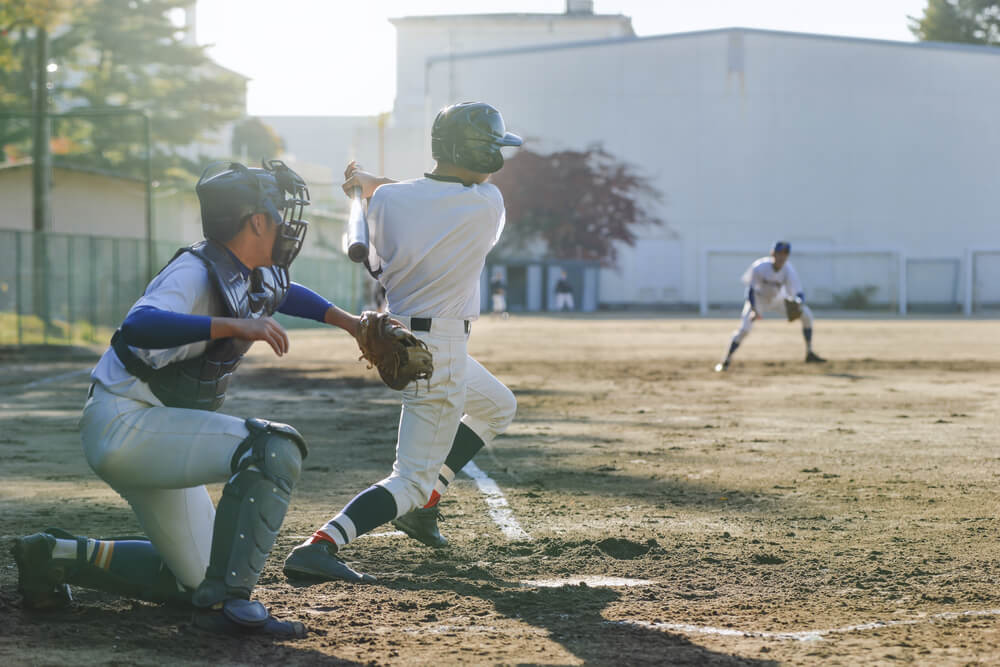 HM: This is me now. I'm old school. It's very lightweight training. I always say low weight, high reps. If you do some weight training at school, you know, middle school don't play. Baseball has got this look, you know, kind of an upper top here strong. But the waist is a normal looking guy. You don't want to look like a football player because the muscles get short and fat. I call them. You don't want to look like this. You want the long lean muscles. So now, push-ups, sit-ups, are great, chin-ups, pull-ups, any of that stuff you can do, bodyweight stuff is good. Anything you can do with bodyweight, I don't think you'll ever hurt yourself. But all of a sudden you start doing those squats or bench presses and like a squat, you put all that weight on your shoulders and all that weight goes into your lower back. So weight training, I wouldn't do too much other than physical fitness stuff. But you'd like to get stronger, but push-ups and sit-ups would be great.
HM: This is me now. I'm old school. It's very lightweight training. I always say low weight, high reps. If you do some weight training at school, you know, middle school don't play. Baseball has got this look, you know, kind of an upper top here strong. But the waist is a normal looking guy. You don't want to look like a football player because the muscles get short and fat. I call them. You don't want to look like this. You want the long lean muscles. So now, push-ups, sit-ups, are great, chin-ups, pull-ups, any of that stuff you can do, bodyweight stuff is good. Anything you can do with bodyweight, I don't think you'll ever hurt yourself. But all of a sudden you start doing those squats or bench presses and like a squat, you put all that weight on your shoulders and all that weight goes into your lower back. So weight training, I wouldn't do too much other than physical fitness stuff. But you'd like to get stronger, but push-ups and sit-ups would be great.
VB: Yeah. What about Brian? What did you do when he was thirteen?
HM: I just talked to him two nights ago on the phone and him and Justin Verlander. We're talking about longevity like Bryant played till he was thirty-five. Verlander still playing and how Justin's, I think, upper 30s and they got talking over lunch. And Brian goes to Verlander. Well, gee, what did your dad do? Weight training-wise. And he goes, we never lifted. And Brian said, we never lifted either. So is there a correlation between letting your body develop and mature, what it's supposed to do at a very young age to encourage longevity? And some of these guys, which I disagree with, they'll take a thirteen-year-old kid, fourteen-year-old kid, and we got to get them, you know, we got to make him look like a high school kid. But they're not they're thirteen years old. So I'd be very careful. There's a real fine line on what's too much. You want to do something but you don't want to do too much.
VB: With Brian when he was thirteen to fifteen, how many days a week did you work with him? Every day?
HM: I wouldn't say every day, but every day he wanted to. If I got home and he wanted to, I had a cage in the backyard and we put some floodlights up and I told my next-door neighbor, Mr. Childers, I go, look, we'll never hit after nine o'clock, I promise. But eight fifty-nine we’re right there hitting. So if he wanted to hit, Brad wanted to hit, we hit and they didn't want to or was raining or they needed a day off. We took a day off. But again, you got two years to get ready for high school.
VB: And about off season?
HM: Off season. Well, we were playing basketball. You know, your son played lacrosse. Yeah, we were playing basketball like that. So in the offseason, we might throw a couple of days a week and swing a couple, but we were more basketball players.
VB: But you still keep the baseball going?
HM: Oh, keep your fingers involved. Like this time of year for me here, kids are playing fall baseball. Now, I get here's what I do with football players. They play football during the week. They have a game Saturday. Most of my football guys come in on Sunday. You know, they nothing's happening on Sunday for youth football. So they'll come in and hit with me.
VB: How hard is to make the high school team? Of course, it's going to depend on the high school level.
HM: I think it's very difficult here in Atlanta where we live up here in Alpharetta, it's very difficult because you only have 30 kids try out and the coaches take in 15 and you can't afford to be number 16. And number 16 is a good player, not a great player, but a good player. And, you know, you've worked your whole career to make that team. If you don't, your world is shattered. And when I say that, you know, I’ve said this many times, if you can leave a high school with a leather jacket, you've had a good four years. Now, what do you take that to the next level? We'll see. But, boy, if you don't make the high school team, it's a long four years for him.
VB: So these two years?
HM: Huge. And that's what I say. And this is one that you really you've got a grasp on. And a lot of the kids that that aren't motivated to play baseball, it has run its course. I'm done. I'm going to play another sport, lacrosse or soccer or whatever. But if you're really into baseball, you want to make that team. This is your two years.
VB: So tell us about these two years and skills. I mean, the skill level is here. In terms of percentage, how high do you bring it up?
HM: You know what? If…if you really get after it, your mechanics get better. And we were talking earlier about throwing. If you throw correctly, you know, and then all of a sudden your body starts to develop and mature. You know, I've seen kids throw 60 miles an hour. A year later, they're throwing 70 and now they go to high school throwing 80. You know, now you're looking at maybe going to the JV team. And if you throw in the middle 80s, a freshman will play varsity baseball. So the mechanics are huge. Now, if you go to a high school tryout and your mechanics are not very good, which we talked about. I think you'll get cut. Like, if you're swing mechanics, if you don't show the coach a good swing, you're not going to hit good pitching. I said in the earlier episode, if your mechanics are just OK, the best you'll ever be is OK and OK is not good enough.
VB: Yeah. Interesting. So, it’s really work hard.
HM: It's amazing when you think about it. Well this is what you want. This is what you've got to do to get it. Now we also talked about this. I still like other sports. Let your son or daughter play another sport in the fall, another one in the winter, and those skills will help your baseball. But come February, January that we've got to get after baseball.
Yeah, I'm an old school guy. I played football and basketball all the way through high school. And I think both those sports helped me in baseball. And you don't get burnt out. You know, I hear that I hear that term like baseball. You should get up in the morning and go, oh, yeah, man, I got a doubleheader today as opposed to oh no, man, I got a doubleheader today. And, you know, we live in Atlanta and it's ninety degrees out and it's a long day for parents. Also, sit outside, watch your kid play two games. You know, you're lacrosse guy. I mean, ninety-five degrees and your kids running back and forth. So yeah, it's in these two years are huge.
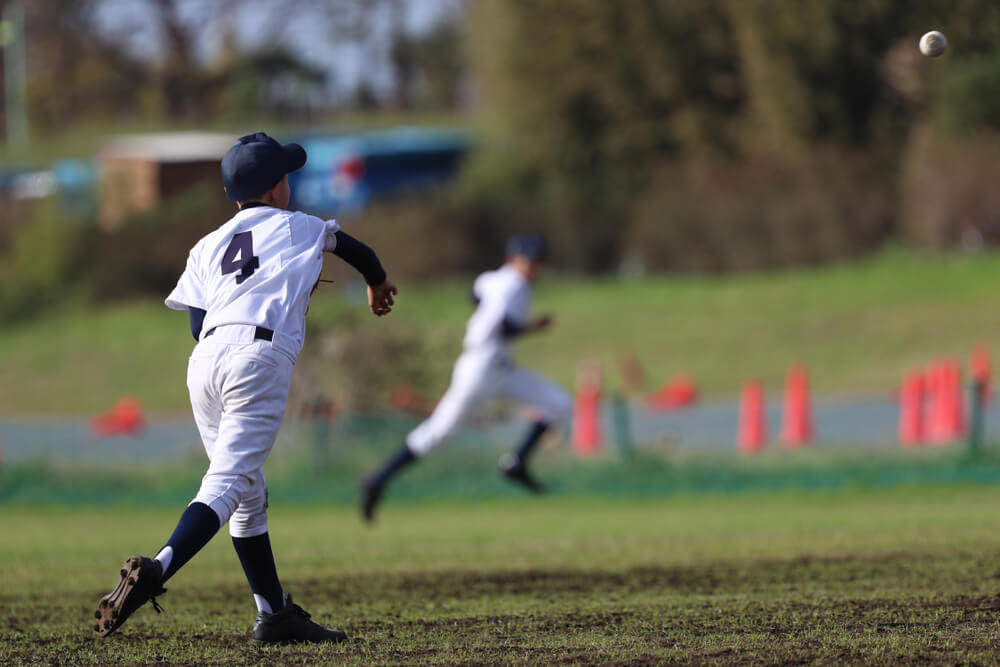
VB: Anything else you would like to add?
HM: No, just be a parent. Be very supportive. This is what your son or daughter wants to do. It's very evident now at nine, ten, eleven, and twelve. Hey Mom and Dad, I think I like baseball. I think now, you know, he does or softball and now you take this and run with it and let him run as far as you can. I made this analogy a couple of times ago. If you had a big-time piano player. Now, my era is Billy Joel. I love that guy. But Billy Joel, if my son was going to be the next piano man, I would certainly get him lessons to learn how to play the piano.
VB: Yeah. So what about the coaches? And, you know, if we move away from the parents but the coaches at 13, 14, do you see a different level?
HM: Yes. The organizations around Atlanta, the real good programs where everybody wants to play for. They've got the best coaches because they understand the next two years. We've got to get your son or daughter, you know, ready to get to the next level. So, yes.
VB: And sometimes the high school coaches involved.
HM: Oh, absolutely. Yes. They call them feeder teams. Let's just use Alpharetta High School right down the street here. They'll put together a feeder team and the coach will show up a couple of times just to see who Victor is, you know, so I can put a face to a name, you know. Now I know who Victor is. So but the feeder team is a chance of you to really get all the Alpharetta kids together to work to understand and get to know each other with the idea to make the high school team.
VB: And, you know, for our international viewers, the American system emphasizes the high school. In Europe or in Central America, in Japan you have more club based at this age. But high school is really high level. A lot of the high school games are televised. Yes. We speak about high school in the next session. But it was very interesting to hear from you.
HM: You can tell I'm excited about 13, 14 because this is the leap, you know, from being a kid to getting you ready for high school. And we've got two years to do it. And the more work you put in, you're going to reap the rewards.
VB: So what's the percentage of 13 to 14 versus at your facility versus, you know, high school ages.
HM: I think I get more young kids because more young kids play. And then at 13, as I said, they go to other sports or they become a musician or an academic guy. But the real guys that are here are 13, 14, 15, 16, 17, 18.
So you get into high school, this is your passion. You want to do what? Playing in college? What's your passion? Play professional? And every kid that's ever played baseball can imagine themselves hitting a walk-off homer in the bottom of the ninth inning to win the World Series. So that's what you're dealing with. And I love kids that have that passion that look in their eye and you just try to maximize them as much as you can.
VB: Great. Well, I'm excited and ready for the next session, but that was very informative. Thank you very much.
